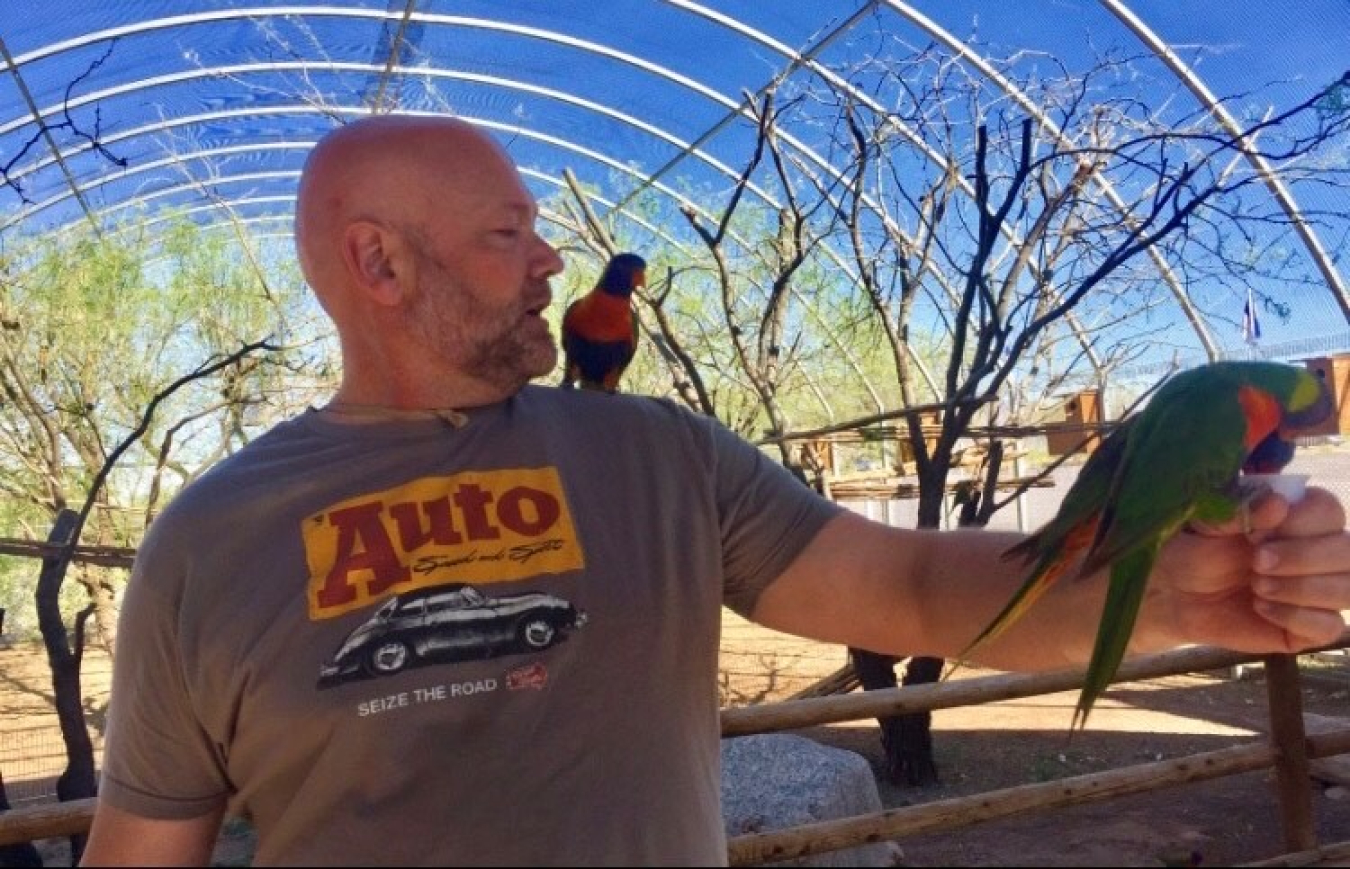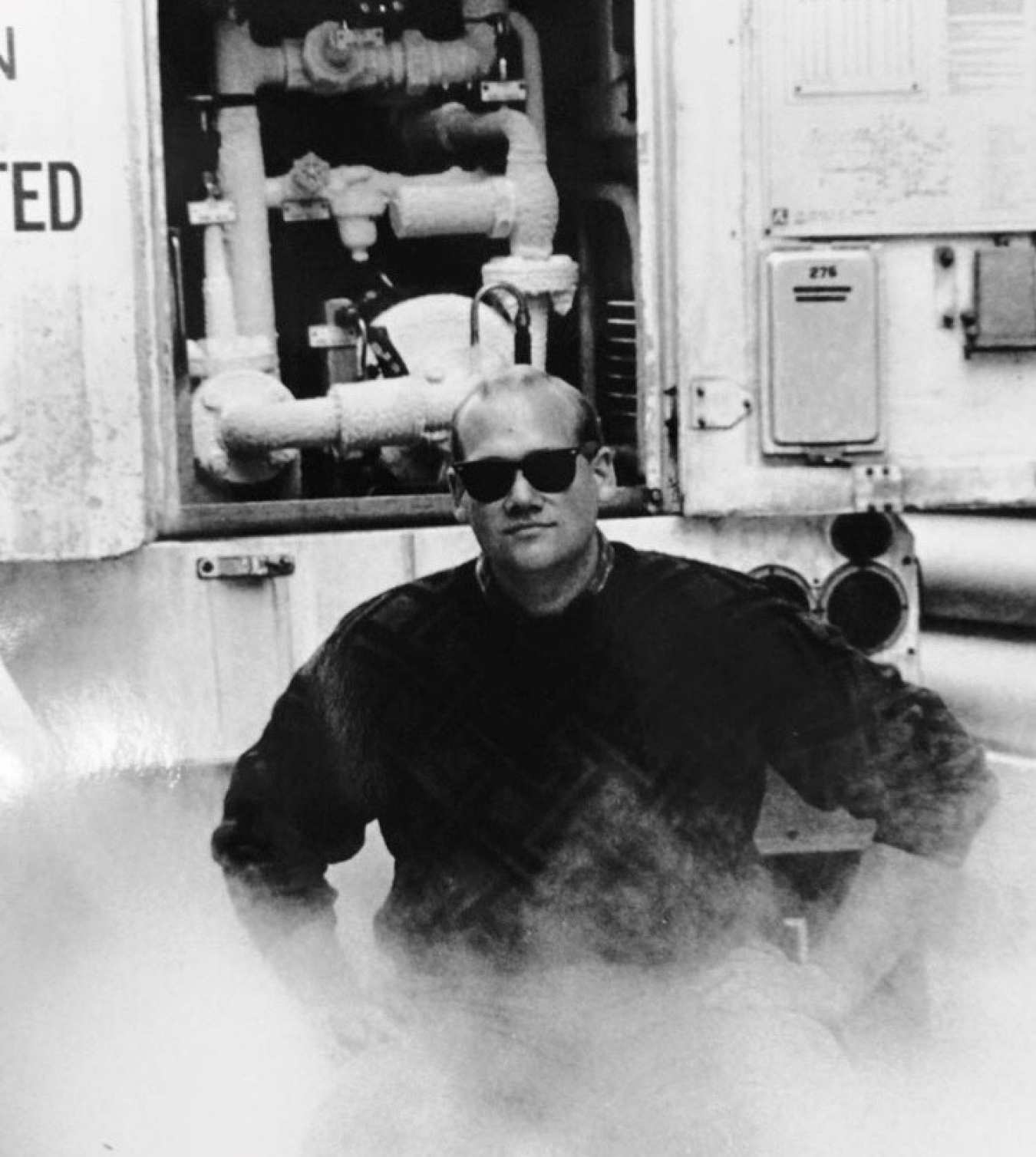New ECHO team leader has spent his career at the crossroads of public health and public relations.
January 4, 2022David Von Behren came to the Department of Energy (DOE) Legacy Management (LM) just two months ago as the Education, Communication, History, and Outreach (ECHO) supervisor — but the office’s public health mission has been a guiding principle throughout his 30-year career.

Von Behren poses with lorikeets at a nature preserve in Picacho Peak, Arizona.
“The clause in our mission statement, ‘to ensure the future protection of human health and the environment,’ really caught my attention,” Von Behren said. “I've worked at the intersection of public health and public relations for my entire career, but the backdrop of historical context and site responsibility made for a unique opportunity.”
Von Behren’s career path has had a consistent theme: the health of underserved communities. During the early days of the COVID-19 pandemic, Von Behren was stationed in Colorado as a communications officer for the U.S. Department of Agriculture’s Food and Nutrition Service.
“The region where I served with the Food and Nutrition Service is home to many Native, urban, and rural communities with hunger challenges – and many of them are located in areas known as food deserts. When the pandemic hit, local food banks were overwhelmed and nationwide supply shortages exacerbated the lack of access to resources,” said Von Behren. “Then, schools went virtual, and their meal programs shut down.” His organization partnered with an airline food company to mobilize more than 12,000 meals in a week for a food bank in St. Louis, and the Food and Nutrition Service supported an infrastructure to continue fighting hunger for other families as the virus spread and lockdowns continued.
Von Behren credits the strength of his relationships within the Native American community in helping bridge the accessibility gap safely and efficiently. As he gears up to lead the ECHO team into the new year, he sees such connections as responsible for driving the continued success of LM’s mission.

Von Behren reporting at the University of Arizona for the Arizona Daily Wildcat in 1988.
Von Behren became interested in the legacy of World War II at a young age. An avid reader, he especially remembers delving into the works of historians Stephen E. Ambrose and Thomas Bradley, whose father was one of the Marines who raised the flag at Iwo Jima. Von Behren, too, felt the call to serve his country, but he also wished to relay the impact of American history on the world today through storytelling.
After high school, Von Behren enlisted in the United States Marine Corps, but injuries early in his career resulted in stints at the hospital. Sidelined from duty, Von Behren was inspired by the medical professionals who surrounded him. As he underwent rehabilitation and treatment programs, he discovered new interests in the world of health and wellness – and he decided to bridge those worlds with his love for storytelling. He turned to journalism. As a reporter and later as a public relations professional, public health became his area of expertise.
Von Behren proved to be a prolific journalist with an appetite for health science research and development. His coverage spanned everything from new scientific findings and emerging data to domestic hunger prevention campaigns. His public health beat led him to communities across North America, including work with numerous Native American tribes.
“Public health is a broad term; it covers all cultures and all communities,” Von Behren said. “I’ve had the honor of speaking with researchers, officials, and representatives of sovereign nations to amplify their experiences and narratives. Behind each effort to protect and preserve health is a story. Throughout my career, I’ve come to understand that no one will tell your story correctly if you don’t.”
For Von Behren and the rest of the ECHO team, protecting the environment and preserving history are simultaneous efforts. “Keeping the public abreast of monitoring and remediation, coordinating new educational initiatives, conducting community outreach, and communicating with other offices across DOE takes a dedicated and flexible approach,” said Von Behren.
As public-facing storytellers, he and his team constantly strive to improve communication with community members to further the office’s mission, whether that’s collaborating with Native American communities, engaging young people to use science in creative ways, supporting public health, or helping the public understand the significance of LM’s sites in United States history.
“LM is small, but mighty,” Von Behren said. “We’re fortunate to have such rich diversity of community involvement efforts.”

